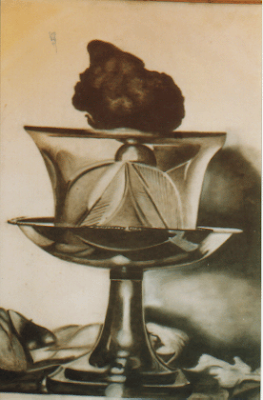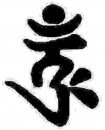
Heart of Master Thich Quang Duc
Hearty Sutra
Atha Prajna Paramita Hridaya Sutrum
Namah Sarva jnaya:
While Avalokiteshvara Bodhisattva was practicing deep prajana-paramita, he enlightened on five skandahs, observed them empty, and is able to resolved all suffering and torment.
Shariputra, form does not differ from emptiness; emptiness does not differ from form. Form is emptiness, and emptiness is form. So too are perception, cognition, transformation, and consciousness.
Shariputra, all dharmas are empty in nature; they are beginning-less and end-less, neither tainted nor immaculate, neither wax nor wane. As a result, within empty space, there is no form, no perception, no cognition, no transformation and consciousness; there is no eyes, no ears, no nose, no tongue, no body and mind; there is no sight and sound, no smells and tastes, no touch, and no dharmas; there is no realm of sight, to the state of which there is no realm of mind-consciousness; there is no delusion nor cessation of delusion, no aging and death nor cessation of aging and death. There is no suffering, no sufferings either accumulated or ceased, and no path to cease sufferings. There is no wisdom and attainment, because nothing is gained, for Bodhisattva was relying on prajana-paramita; his heart is detached, thus unattached and fearless. He left perversion and delusion behind. Complete Nirvana!
Shariputra, every Buddha from three tenses relied upon on prajana-paramita to attain anuttara-samyak-sambodhi. Henceforth prajana-paramita is known as The Great Mantra, The Enlightening Mantra, The Supreme Mantra, and of The Unequal Class Mantras. No doubt it is able to cease all suffering and perversion.
Thus it is declared:
Gate gate paragate parasangata bodhi svaha!
Translated by A.Chang (263 of words in total, just one more than that of the Chinese Heart Sutra!)
(Please inform me if you think that there is error in translation)
P.S. after Master Thich Quang Duc's self-immolation to protect Buddhism and after his re-cremation, his heart still kept intact.










